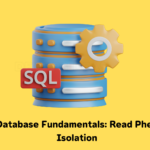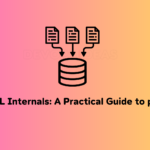Introduction: Elevating Business Operations
Imagine starting your workday with your AI assistant already having sorted through your emails, prioritized your tasks, and drafted responses that mirror your tone and style. By the time you sit at your desk, your AI agent has scheduled meetings, coordinated with team members, and prepared personalized agendas for each call. This transformation is made possible by AI agents in business, which are becoming vital for enhancing productivity and efficiency.
When a client reaches out for support, the AI agent swiftly interprets their request, retrieves the necessary information, and crafts a detailed, empathetic response. All of this happens autonomously, allowing you to concentrate on strategic decision-making and creative problem-solving.
Generative AI (Gen AI) and AI agents have revolutionized business operations, transforming how we work, communicate, and create. From simple chatbots to sophisticated systems capable of handling legally binding agreements, these technologies have become indispensable. As their capabilities grow, so do the challenges of ensuring their reliability, ethical behavior, and accountability. It’s evident that AI agents in business are becoming crucial.
1. Generative AI and Foundation Models: The Powerhouses Behind AI Agents
Generative AI refers to systems capable of producing new content—whether it’s text, images, music, or code—by analyzing and mimicking patterns in existing data. At the heart of this revolution are foundation models, such as OpenAI GPT-4, Google PaLM 2, Meta Horizon.
These foundation models are pre-trained on vast datasets and fine-tuned for specialized tasks. Their versatility powers everything from automated design tools to conversational agents. This flexibility has enabled the creation of AI agents, systems that merge generative AI’s creativity with sophisticated decision-making abilities.
2. How AI Agents Operate: A New Workflow
Unlike traditional automation, which relies on rigid “if X, then Y” logic, AI agents operate dynamically by leveraging foundation models. Here’s their typical workflow:
- Input Processing: AI agents receive an input, such as a query, system update, or environmental signal.
- Foundation Model Analysis: The input is analyzed to extract context, sentiment, or intent. For example, a natural language model processes text to identify user needs.
- Task Execution: Based on the analysis, the agent executes a task, such as retrieving information, generating content, or triggering further workflows.
- Feedback Loop: Continuous feedback refines the agent’s performance over time, ensuring adaptability in dynamic environments.
Example Workflow in Action
Imagine an AI agent handling customer service:
- A user submits, “I need help tracking my order.”
- The foundation model interprets this as a tracking request.
- The agent queries the database, retrieves tracking details, and crafts a personalized response: “Your order #54321 will arrive tomorrow. Let me know if you have further questions.”
- Feedback from the user is incorporated to improve future responses.
This dynamic and iterative process makes AI agents far more flexible and capable than traditional business automation systems.
3. What Are AI Agents?
An AI agent is a system designed to perceive its environment, process inputs, make decisions, and act autonomously to achieve goals. Unlike traditional software, AI agents are dynamic and capable of adapting to complex, unpredictable scenarios.
Key Characteristics of AI Agents:
- Perception: Gathering data from sensors, user inputs, or systems.
- Decision-Making: Evaluating options and selecting the best course of action.
- Action: Influencing the environment, such as sending messages or controlling devices.
- Autonomy: Operating without constant human intervention.
- Learning: Improving through feedback and experience.
From personal assistants like Siri to autonomous robots in logistics, AI agents are reshaping industries and everyday life.
4. Types of AI Agents
AI agents vary in complexity and capabilities. Here are the seven primary types:
- Reactive Agents: Respond directly to stimuli without memory.
- Example: Smart home devices adjusting temperature based on immediate input.
- Model-Based Reflex Agents: Use internal models to predict outcomes.
- Example: Self-driving cars analyzing road conditions to avoid collisions.
- Goal-Based Agents: Act to achieve specific objectives using contextual information.
- Example: AI scheduling tools optimizing workflows in project management.
- Utility-Based Agents: Evaluate actions to maximize utility for the user.
- Example: AI financial advisors recommending investment strategies.
- Learning Agents: Continuously improve through interaction and feedback.
- Example: Virtual assistants learning user preferences for better recommendations.
- Multi-Agent Systems: Collaborate to solve complex problems.
- Example: Swarm robotics in disaster relief operations.
- Hybrid Agents: Combine multiple architectures for enhanced functionality.
- Example: AI legal tools drafting contracts while analyzing risks.
5. Responsible AI: Balancing Innovation and Ethics
Responsible AI ensures that systems empower users without compromising ethical principles.
Core Principles:
- Transparency: Disclose AI involvement.
- Trust: Build confidence through consistent, ethical behavior.
- Fairness: Address biases in training data.
- Accountability: Define liability for AI actions.
- Sustainability: Develop energy-efficient models.
- Global Collaboration: Governments, industries, and academia must work together to establish universal standards for responsible AI.
6. Evaluating AI-Generated Content and Actions
As AI agents take on increasingly complex and high-stakes responsibilities, robust evaluation systems are critical to ensure reliability, effectiveness, and accountability.
Key Validation Methods for AI Evaluation:
- ROUGE (Recall-Oriented Understudy for Gisting Evaluation): Measures the overlap between AI-generated content and reference content by comparing n-grams, sequences, and sentence structure.
- BLEU (Bilingual Evaluation Understudy): Evaluates how closely AI-generated text matches reference translations.
- METEOR (Metric for Evaluation of Translation with Explicit ORdering): Considers synonyms, stemming, and paraphrasing for nuanced evaluation.
- BERTScore: Leverages contextual embeddings to assess semantic similarity.
- Human Evaluation: Involves human judges assessing outputs for quality, coherence, and appropriateness.
- Intent Alignment Index: Ensures that an agent’s actions align with the user’s explicit and implicit instructions.
- Legal and Ethical Compliance Metrics: Flags potential legal or ethical violations in an agent’s actions.
- End-to-End Task Evaluation: Assesses overall task success rather than isolated outputs.
Iterative Feedback and Continuous Improvement
AI agents benefit from real-time feedback loops and retraining to refine responses in dynamic environments.
7. Opportunities in AI Evaluation
The rise of AI agents creates new opportunities, including:
- Roles: AI Interaction Evaluators and Compliance Analysts.
- Technologies: Real-time evaluation systems embedded in tools like Slack.
- Industries: Standardization of evaluation protocols across sectors.
8. The Road Ahead: AI Agents Shaping the Future
From healthcare to education, AI agents will redefine workflows and collaboration. While the possibilities are immense, challenges such as ethical oversight, standardization, and accessibility must be addressed to fully realize their potential.
Finance
In the finance sector, AI agents are transforming how financial services are delivered. They can assist with fraud detection by monitoring transactions and flagging suspicious activities in real-time. AI agents can also provide personalized financial advice based on an individual’s spending habits, financial goals, and market trends. Investment firms can leverage AI agents to automate trading strategies, optimizing portfolio management and maximizing returns.
Healthcare
In healthcare, AI agents are poised to revolutionize patient care and administrative processes. Imagine AI agents assisting doctors with diagnostic decisions by analyzing medical records and recommending personalized treatment plans. AI agents can also manage appointment scheduling, streamline billing processes, and provide 24/7 support through virtual health assistants. For instance, AI agents could monitor patient vitals in real-time, alerting healthcare professionals to any anomalies and enabling timely interventions.
Education
AI agents in education can enhance the learning experience by providing personalized tutoring and feedback. They can analyze student performance data to tailor learning paths and offer additional resources where needed. Instructors can use AI agents to automate administrative tasks, such as grading and attendance tracking, allowing them to focus more on teaching and mentoring. AI agents can also facilitate remote learning by creating interactive and engaging virtual classrooms.
Retail
Retail businesses are leveraging AI agents to enhance customer experiences and streamline operations. AI agents can provide personalized product recommendations, manage inventory, and optimize supply chain logistics. In e-commerce, AI agents can offer 24/7 customer support, assist with order tracking, and handle returns and exchanges efficiently. Retailers can also use AI agents to analyze consumer behavior and predict trends, enabling more effective marketing strategies.
Manufacturing
In manufacturing, AI agents are improving efficiency and reducing downtime through predictive maintenance and quality control. AI agents can analyze data from sensors on production equipment to detect potential issues before they lead to failures. This proactive approach minimizes disruptions and extends the lifespan of machinery. Additionally, AI agents can optimize production schedules and workflows, ensuring that resources are used efficiently and deadlines are met.
Legal
In the legal sector, AI agents are transforming how legal research and case management are conducted. AI agents can analyze vast amounts of legal documents to identify relevant information, saving lawyers time and effort. They can also assist with contract analysis, ensuring that agreements comply with regulations and identifying potential risks. AI agents can support e-discovery by quickly sifting through electronic data to find evidence for litigation.
Transportation and Logistics
AI agents are optimizing transportation and logistics operations by improving route planning and fleet management. They can analyze traffic data, weather conditions, and delivery schedules to determine the most efficient routes, reducing fuel consumption and delivery times. AI agents can also monitor vehicle performance, scheduling maintenance to prevent breakdowns and extend the lifespan of the fleet. In logistics, AI agents can enhance warehouse management by automating inventory tracking and order fulfillment.
Human Resources
AI agents are streamlining HR processes, from recruitment to employee engagement. They can screen resumes, schedule interviews, and even conduct initial assessments to identify the best candidates for a role. AI agents can also assist with onboarding, providing new hires with essential information and answering their questions. For existing employees, AI agents can offer personalized career development plans and monitor engagement levels, providing insights to HR managers for improving workplace satisfaction.
Hospitality
In the hospitality industry, AI agents are enhancing guest experiences and operational efficiency. AI agents can handle reservations, check-ins, and customer inquiries, providing personalized recommendations for dining and activities. They can also assist with inventory management for hotel supplies and optimize staff schedules based on guest needs. By leveraging AI agents, hospitality businesses can offer seamless and memorable experiences for their guests.
9. The Rise of Reliable AI Agents
It’s conceivable that AI agents could become more reliable than individuals. In the near future, customers or partners might prefer to ask, “Can I talk to your agent?” rather than speaking to you directly. These agents, with their consistent performance, vast knowledge, and ability to learn from interactions, could surpass human reliability in various tasks. This shift could revolutionize customer service, professional interactions, and even personal relationships, as AI agents become trusted representatives in both business and personal contexts.
Conclusion
Generative AI and AI agents in business are not just tools—they are collaborators shaping the future of work and communication across various industries. Their potential is boundless, but their success hinges on responsible implementation, rigorous evaluation, and a commitment to ethical practices. By balancing innovation with responsibility, we can ensure these technologies empower humanity rather than replace it.


